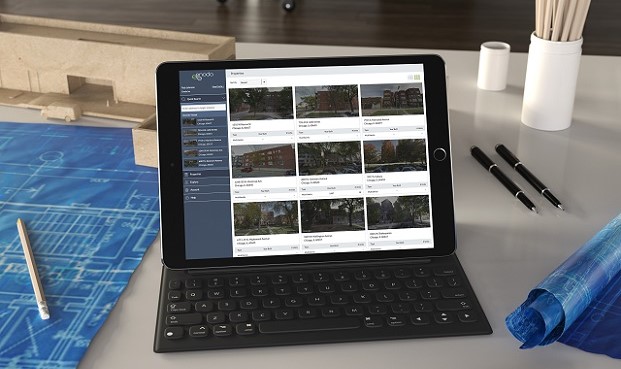
CHICAGO—Construction in the multifamily market has proceeded at a breakneck pace for several years now, giving prospective tenants many options and making it crucial that landlords differentiate their product from the competition. As a result, an amenities war has broken out, with many owners adding an increasing number of perks to their properties in hopes of signing up high-paying residents. But how can they be certain which amenities bring in those new residents and ultimately generate returns?
Chicago-based Enodo believes it has solved the dilemma. This new predictive analytics platform was founded in 2016 and built a still-growing database of 2.1 million apartments across the US. It tracks building and unit amenities, market demographics, competing developments, access to transit and retail availability, among many other factors. Enodo recently opened the platform for use and developers, brokers, owners and investors can now, with a few clicks on their keyboards, discover just how much various amenities or features add to a particular property's rental rates.
“Everyone knows amenities are important in real estate, but no one has ever quantified it,” Marc Rutzen, co-founder and chief technology officer of Enodo, tells GlobeSt.com. “People have a sense of what the cost of providing an amenity is going to be,” but even today, many still rely on intuition when deciding whether it will actually add value.
Twenty years ago, that approach made sense, as very little data was available to gauge the value of an amenity. However, with the vast amounts of data now available, through municipal databases and many other sources, “it doesn't have to be that way,” says Rutzen. The challenge is how to synthesize all of these sources in a useful way.

“No one needs more data today,” he adds. “What they need is a way to get insight into the data that already exists.” And Enodo “provides a way to quantify every change that can impact real estate values.”
The platform has enough data that it can quantify even small adjustments. A developer can even see in which markets tenants will pay more for apartments with quartz countertops rather than granite ones.
In Chicago, one of the most common amenities, with a 55% frequency, is a pet-friendly building, according to an Enodo analysis. And a Chicago apartment that allows pets can see a $34 per month rent premium. A fitness center, by contrast, available in 39% of apartments, brings a $53 per month premium.
Enodo data analytics also show that in some markets, certain amenities are essential. In Houston, for example, about 80% of apartment communities have a pool, says Rutzen, “so it's actually a prerequisite.”
Enodo began life at ElmSpring, an accelerator within 1871 in Chicago's Merchandise Mart for tech firms that focus on real estate. Susan Tjarksen and Lee Kiser, co-founders of KIG Commercial Real Estate, a Chicago-based multifamily brokerage, also provided funds, expertise and data to get Enodo started, although the companies are separate entities. Rutzen was data analytics officer for KIG until founding Enodo.
He points out that property appraisals can cost thousands, and full-market analyses can cost tens of thousands. “Were doing both of these things instantly with the platform.” And using it requires very little or no handholding from the firm's 12 employees. “We designed it to be very intuitive and easy to understand.”
The platform already has more than 180 users. “We think this is just the beginning.”
© 2025 ALM Global, LLC, All Rights Reserved. Request academic re-use from www.copyright.com. All other uses, submit a request to [email protected]. For more information visit Asset & Logo Licensing.








